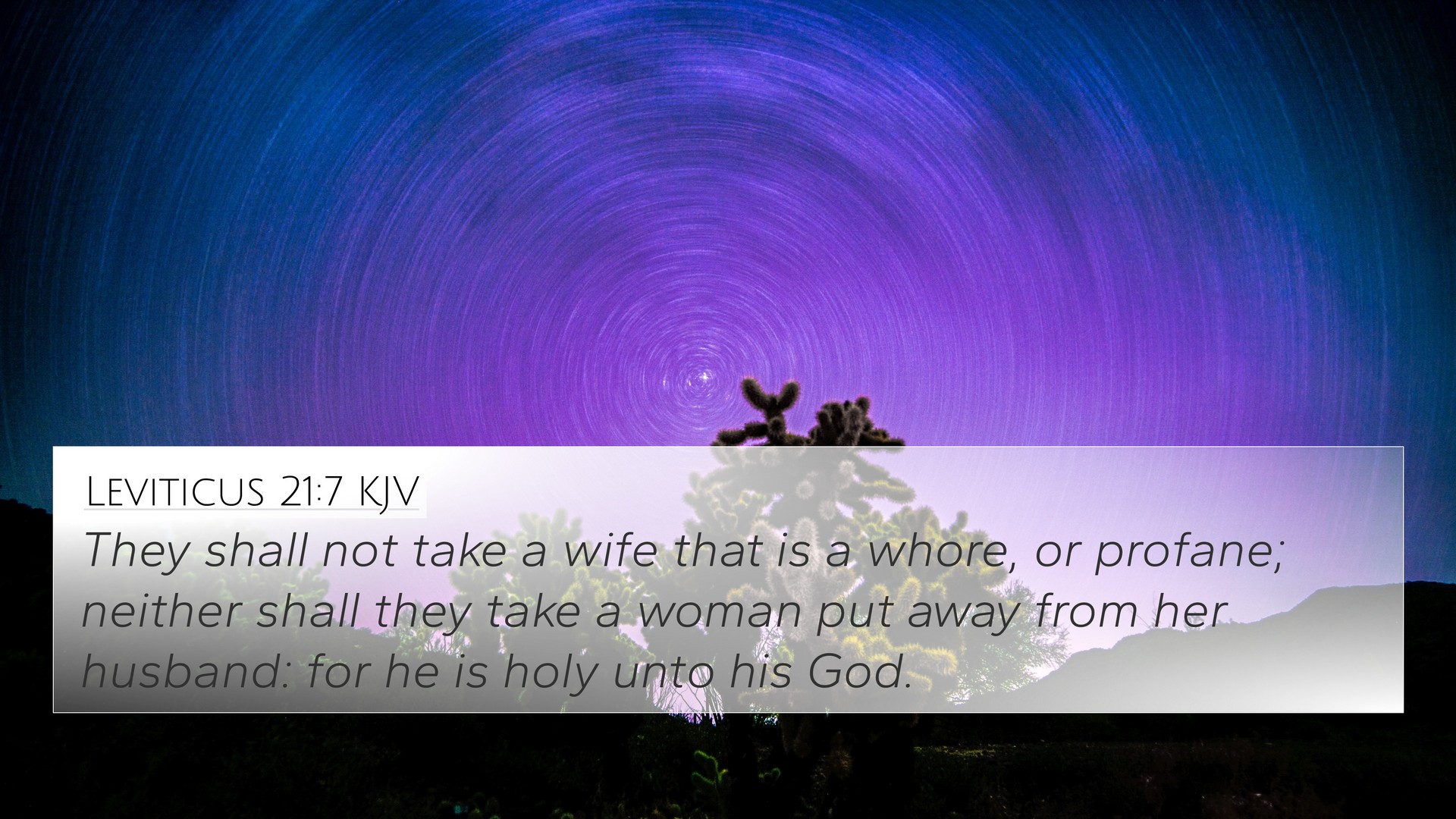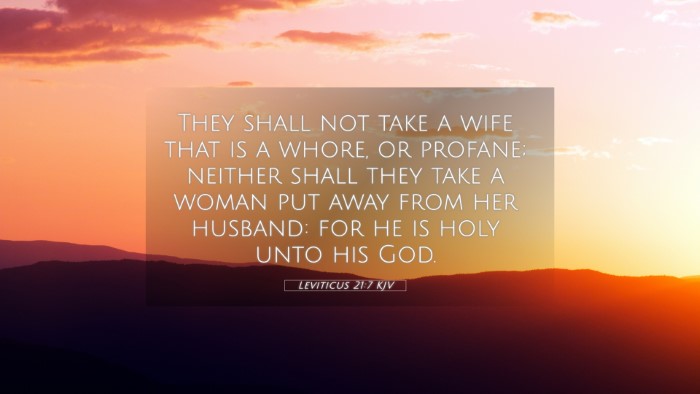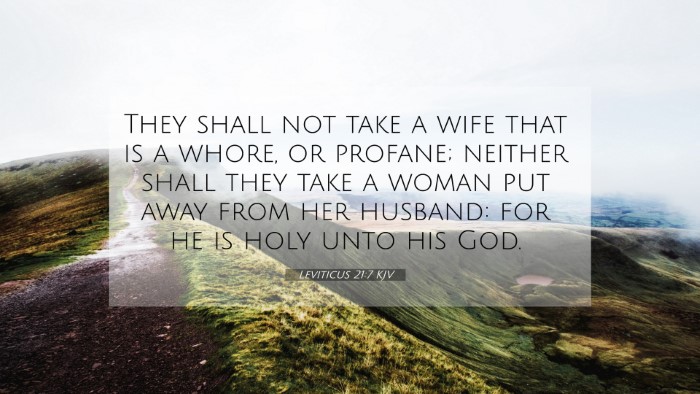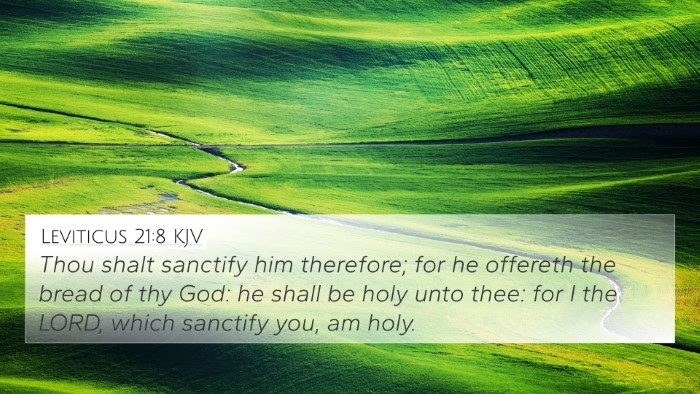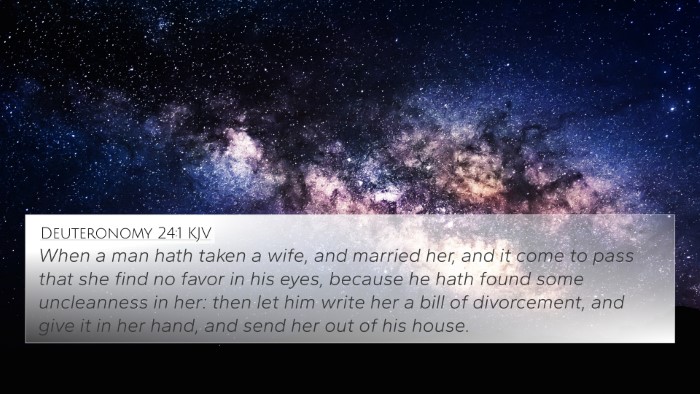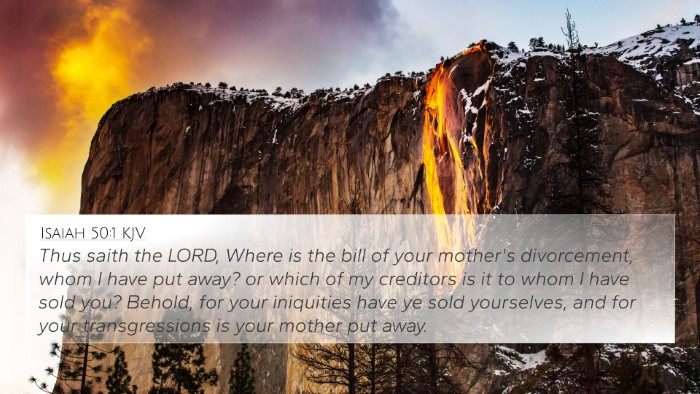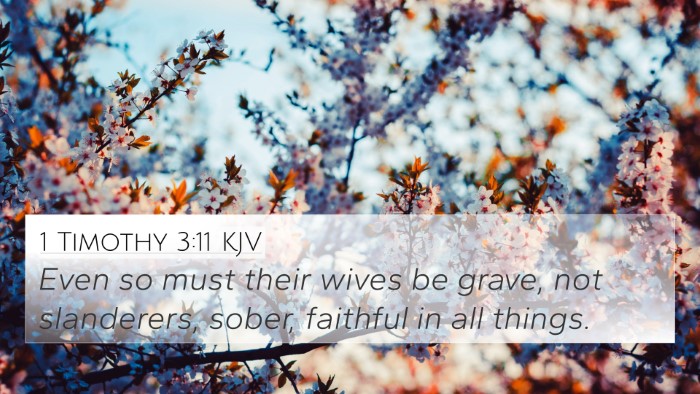Understanding Leviticus 21:7
Leviticus 21:7 (KJV): "They shall not take a wife that is a whore, or profane; neither shall they take a woman put away from her husband: for he is holy unto his God."
Overview
Leviticus 21:7 lays out specific regulations for priests in ancient Israel regarding marriage. This directive emphasizes the importance of holiness and the moral conduct expected of those serving in a sacred role.
Insights from Public Domain Commentaries
Various public domain commentaries provide critical insights into the meaning of this verse.
-
Matthew Henry:
Henry emphasizes that the priest's marriage must reflect the sanctity of his office. By avoiding the marriage of women considered profane or immoral, priests demonstrate their commitment to God through their personal lives.
-
Albert Barnes:
Barnes discusses the cultural context of these mandates, interpreting them as protective measures to maintain the moral and ceremonial purity of the priesthood. The emphasis on not marrying a "profane" woman underscores the significance of spiritual integrity.
-
Adam Clarke:
Clarke outlines that the term ‘whore’ indicates not only sexual immorality but also unfaithfulness in worship. A priest must marry a woman who embodies holiness, reflecting the seriousness of their spiritual calling.
Thematic Connections in Scripture
This verse not only provides insight into the priesthood but also connects with broader themes throughout the Bible, such as holiness, marital fidelity, and the spiritual responsibilities of leadership.
Key cross-references related to Leviticus 21:7 include:
- Exodus 19:6: "And ye shall be unto me a kingdom of priests, and an holy nation…" - This verse establishes the foundational concept of holiness within God's chosen people.
- 1 Peter 2:9: "But ye are a chosen generation, a royal priesthood, an holy nation..." - Reflecting the idea that all believers are called to holiness.
- Ezekiel 44:22: "Neither shall they take for their wives a widow, nor her that is put away: but they shall take maidens of the seed of the house of Israel, or a widow that had a priest before." - This reiterates the requirements for priestly marriage.
- Malachi 2:15: "And did not he make one? Yet had he the residue of the spirit. And wherefore one? That he might seek a godly seed." - Highlights the call for righteousness in marital unions.
- Hebrews 13:4: "Marriage is honorable in all, and the bed undefiled: but whoremongers and adulterers God will judge." - Affirms the sanctity of marriage and the serious consequences of infidelity.
- Proverbs 5:15: "Drink waters out of thine own cistern, and running waters out of thine own well." - A call to fidelity and faithfulness in marriage.
- 1 Corinthians 6:15-16: "Know ye not that your bodies are the members of Christ? shall I then take the members of Christ, and make them the members of an harlot? God forbid." - Discusses the implications of becoming one with immoral individuals.
Importance of Holiness in the Priesthood
The expectation for priests to marry only virtuous women is linked to their representation of God on earth. The priest's life was a public testimony to the holiness and character of God, which necessitated a high standard of personal conduct.
Application for Today
For modern readers, Leviticus 21:7 serves as a reminder of the importance of moral integrity in leadership. Whether in spiritual or secular roles, those who lead are expected to exemplify the values they promote. The principles found in this verse can inspire contemporary believers to seek purity, not only in personal relationships but also in their broader spiritual lives.
Conclusion
Leviticus 21:7 is a significant verse that underscores the importance of holiness, fidelity, and moral integrity among leaders, particularly those in spiritual leadership. The teachings from this verse resonate throughout Scripture, reinforcing the connection between righteous living and sacred duties. For those wishing to dive deeper into the Bible, tools for Bible cross-referencing can help uncover further links between verses, enhancing understanding and application of Biblical teachings.
